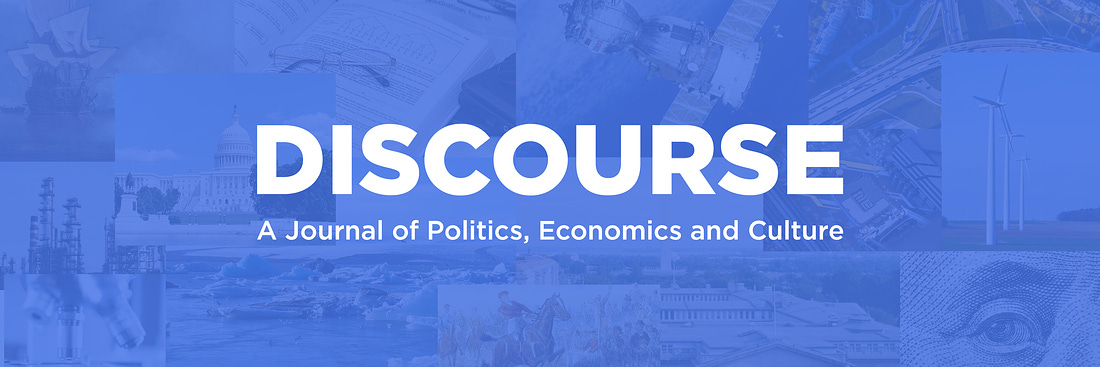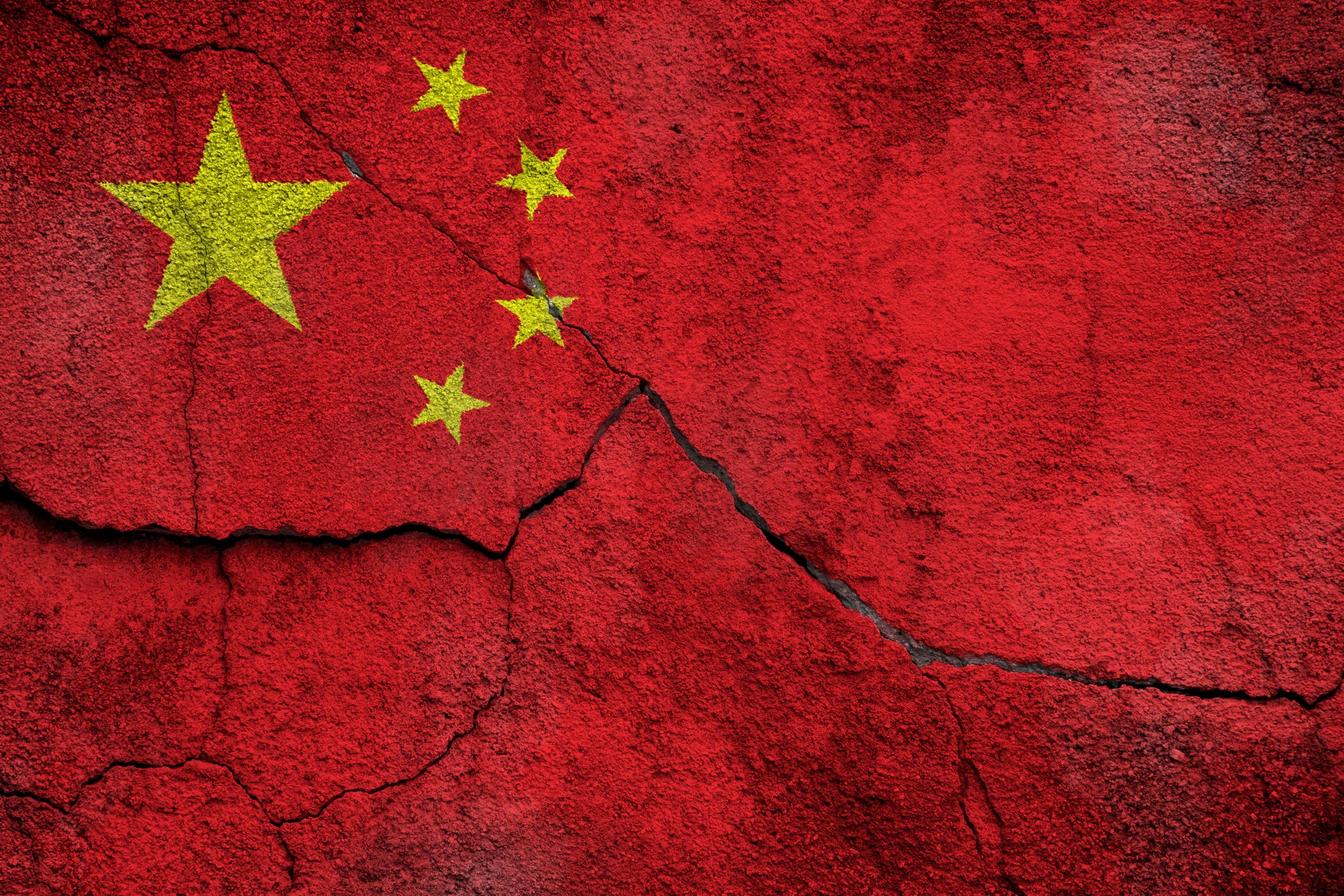|
 |
Are We Too Worried About International Threats?
We should chill out and let the threats to America self-destruct—even China
A recent report of the bipartisan Commission on the National Defense Strategy opens by dramatically declaring, “The threats the United States faces are the most serious and most challenging the nation has encountered since 1945.” It strongly advocates increasing defense spending, paying for it by reducing entitlements and entering a “glide path” toward a top marginal tax rate of over 70%. The report has generated admired notice in recent weeks from Walter Russell Mead in The Wall Street Journal, David Leonhardt in The New York Times and Michael Smerconish on CNN.
However, we’ve heard such official alarmism before about the military threats out there. Some 12 years ago, for example, officials told us that the world was “more dangerous than it has ever been” and that “crises and threats” abounded “around the globe.” And before that, 9/11 propelled more than a decade of alarm about Islamist terrorism. Earlier presidents said they were certain that failing to enter the wars in Korea and Vietnam would have resulted in World War III.
Thus, Jane Harman, the commission’s chair, had a great deal of tradition behind her when she told Leonhardt that the “warning signs today” are similar to those in the run-up to Pearl Harbor. But are these threats getting blown out of proportion?
The commission’s new report does not fully evaluate the threats it claims justify the increased military expenditures it advocates. In particular, it leaves out considerations of the self-destructive antics of the most important threats it is worried about—including those posed by China.
Concerns About China
Threats as serious as Russia, Iran and North Korea merit single pages in the commission’s 132-page report—and these entries don’t fully grasp the realities of the actual challenges each poses to the U.S. and the world. The report’s discussion of Russia, for example, focuses almost entirely on Russian President Vladimir Putin’s monumentally failed military effort to take over unprepared Ukraine. Success there, it assures us, would embolden him to attack elsewhere, a viewpoint that ignores not only the clumsiness and costliness of the failure, but the fact that, as many analysts have stressed, Ukraine has a special and unique connection to Russian interests and historical perspectives, which suggests that the effort is unlikely to prove to be a prelude to wider expansion.
According to the report, however, the “most formidable military threat” is the one presented by China, though it only devotes two and a half pages to what it deems to be this “preeminent challenge.” There are great concerns about China’s defense buildup, and the report cites estimates that its defense budget is now comparable to that of the U.S., while acknowledging in a footnote that other estimates are far lower.
In 2012, as he was becoming the paramount leader in China—a position he still holds—Xi Jinping did proclaim: “We must achieve the great revival of the Chinese nation, and we must ensure there is unison between a prosperous nation and a strong military.” China’s subsequent military buildup under Xi has indeed been extensive, and it has included even gaining a few bases in the Middle East, though these seem potentially designed to help maintain the sea lanes so vital to China’s development.
Because of its size and economic growth, China is now in second place globally in total GDP (though 78th in per capita GDP), a position it has occupied for most of the past two millennia. Partly impelled by that development, it wants to be seen as a “great power.” As part of this, China is seeking to gain “influence” and “to assert dominance in East Asia and project influence globally” by lending money through its Belt and Road Initiative to a vast array of other countries and by engaging from time to time in “wolf warrior diplomacy” using economic and military muscle to badger and to bully.
However, these efforts have been remarkably futile and counterproductive. Rather than generating admiration or obedience from countries that once wished it well, resentment at its “wolf warrior” antics has soared not only in the West but also in important neighbors like Japan, South Korea, India, Vietnam, Indonesia, Australia and, most significantly, Taiwan, pushing some of them further into the embrace of the United States.
The Belt and Road Initiative is awash in unpaid debt, and loan outlays were cut from $75 billion in 2016 to $4 billion in 2019. As former National Security Advisor Condoleezza Rice has recently observed, “The BRI is often depicted as helping China win hearts and minds, but in reality it is not winning anything” as recipients grow “frustrated with the corruption, poor safety and labor standards, and fiscal unsustainability associated with its projects.”
China’s Taiwan Weakness
The report sees China’s potential future invasion of Taiwan as its first salvo in its drive to “dominate” East Asia. To supply his military with some guidance, Xi has given it the goal of being able to successfully invade Taiwan by 2027, a mission that the report and many others in the West consider ominous. However, Timothy Heath of RAND points out that in setting that timeline, Xi was seeking primarily “to keep the military focused on its goal of becoming more professional and resist tendencies of slipping into corruption and lethargy,” and that there appears to be no evidence of an intent, in anything like the immediate or not-so-immediate future, to actually invade. Xi himself is reported to be exasperated at the West’s claim and insists that plans to invade in 2027 (or, for that matter, in 2035) simply do not exist.
Moreover, the problems accompanying such an effort are likely to be sobering to military planners. The report does note that a Chinese invasion of Taiwan would be economically devastating, but it fails to note the difficulty, emphasized by many in the U.S. military, of a massive amphibious landing: Stormy seas and weather rule out landings for the vast majority of the year, and potential landing beaches are small in number and well-fortified. In addition, resistance in the form of guerrilla and urban warfare in the mountainous interior by some of the 20 million intensely hostile Taiwanese residents could prove to be extensive.
Moreover, in the contingency considered by some analysts to be “most likely,” a military conquest of Taiwan would require China to outdo Pearl Harbor by raining thousands of missiles not only on Taiwan but on American military bases and ships in Japan and Guam. The judgment of the CIA, according to its director William Burns last year, is that “President Xi and his military leaders have doubts today about whether they could accomplish that invasion,” and that “if they look at Putin’s experience in Ukraine, that’s probably reinforced some of those doubts.”
Impelled by such considerations, longtime diplomat and China-watcher Ambassador Winston Lord has concluded that the chances of an invasion of Taiwan in the next decade or two are “somewhere between one and two percent.”
The Potential for Chinese Decline or Stagnation
A more plausible occurrence is that rather than rising to anything that could be conceived as “dominance,” China could decline into substantial economic stagnation. Indeed, some analysts worry that it might lash out militarily in the next few years before that condition fully takes hold.
That seems increasingly unlikely, however. Xi has been adept at working his way into unchallenged one-man rule in China and at embedding himself at the center of a compliant echo chamber. Yet he is already preoccupied with a growing set of domestic problems, most of them deriving from his determination to choose control by the antiquated and kleptocratic Communist Party over economic development.
Among the problems are endemic corruption, environmental degradation, slowing growth, capricious shifts in government policies, recovering from its costly and abruptly canceled “zero COVID” policy, favoring inefficient enterprises, fraudulent statistical reporting, a rapidly aging population accompanied by a strong and fearful aversion to immigration, enormous overproduction, huge youth unemployment, increasing debt, a housing bubble, restive minorities, protectionist policies, alienation of Western investors and a clampdown on civil liberties (one can be imprisoned for “picking quarrels and provoking trouble”) that includes a massive policing of the internet.
Business startups have declined astoundingly from more than 51,000 in 2018 to just over 1,000 in 2023. Of late, there also seems to be a decline of confidence in, and credibility of, Communist Party dictates within the country, a change in trust that could have unpleasant long-term consequences for the regime.
Is Containment Necessary?
A military policy seeking to “contain” China, therefore, is scarcely called for. Indeed, it is more likely to fuel, not allay, the common motivating belief within China that America is out to stop its growth. Moreover, as former Ambassador Chas Freeman puts it, “There is no military answer to a grand strategy built on a non-violent expansion of commerce and navigation.”
A sensible alternative would be to wait (perhaps for a rather long time) for China to mellow on its own—although currently in eclipse, there is a substantial liberal element in China. This approach could be pursued while warily profiting from China’s economic size and problems and maintaining the decades-long comic opera charade in which Taiwan is independent as long as it doesn’t say so—a position that continues to enjoy majority support in Taiwan.
That comparatively laid-back policy could also seek to humor China by welcoming it into the “leadership” club as if that had some tangible meaning, perhaps while issuing periodic, if unproductive, complaints about civil liberties in China. Concerns about military and economic spying and misbehavior would remain viable, but overt or covert efforts to secure regime change in China are likely to prove futile and counterproductive.
The Option of Doing Nothing
There is a more general lesson that arises from these considerations: Although the option of doing nothing or next to nothing in response to a perceived military threat might not always be wise, it is one that should at least be on the table in any rational decision-making process.
Thus, the costly policies of containment and deterrence applied for decades against the Soviet Union were scarcely necessary because they did not substantially impede ideological expansion and because the Soviets never really saw direct aggression against the West as sensible or potentially productive. In the end, the Cold War was resolved not by crafty U.S. policies and actions, but by the self-destruction of the Soviet Union and of international communism.
As analyst Strobe Talbott once put it, the Soviet system went “into meltdown because of inadequacies and defects at its core, not because of anything the outside world had done or threatened to do.” Historian Odd Arne Westad agrees: It came about primarily “because of weaknesses and contradictions in the Soviet system itself.” Something roughly similar happened to the threat supposedly posed by an economically rising Japan, a threat that was once fashionably and passionately embraced in the United States and that inspired the decidedly nonprescient, but well-received, 1991 book “The Coming War with Japan.”
Such experiences suggest that for China policy today, Napoleon may have gotten it right: Never interrupt an adversary, he advised, when it is making a mistake.
You’re currently a free subscriber to Discourse .

